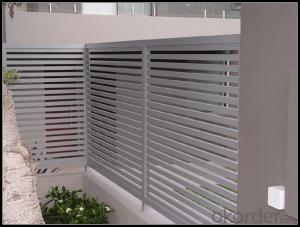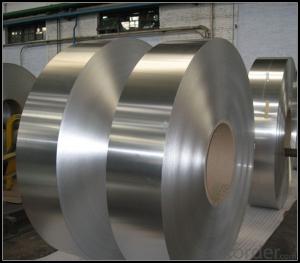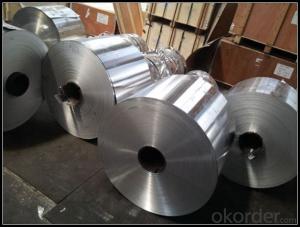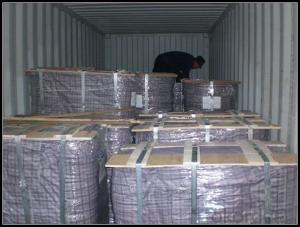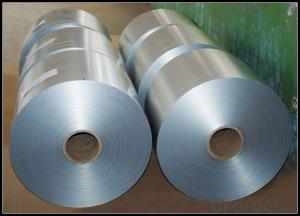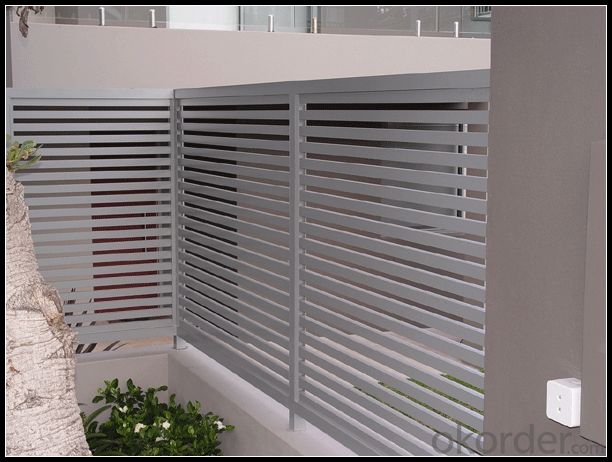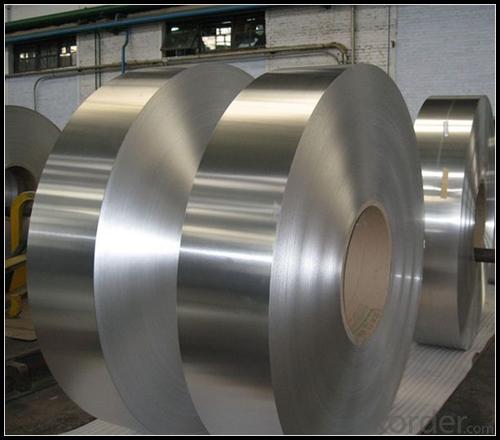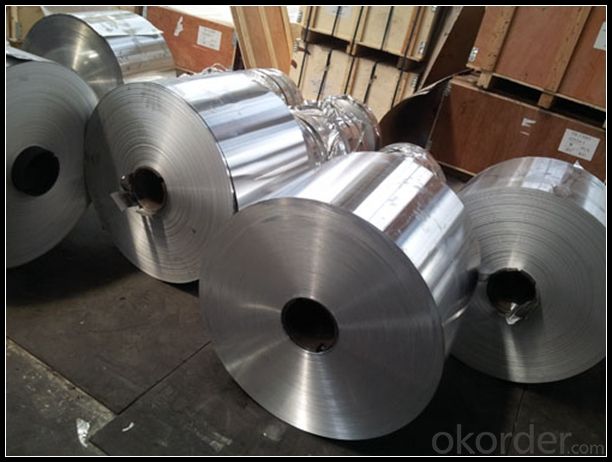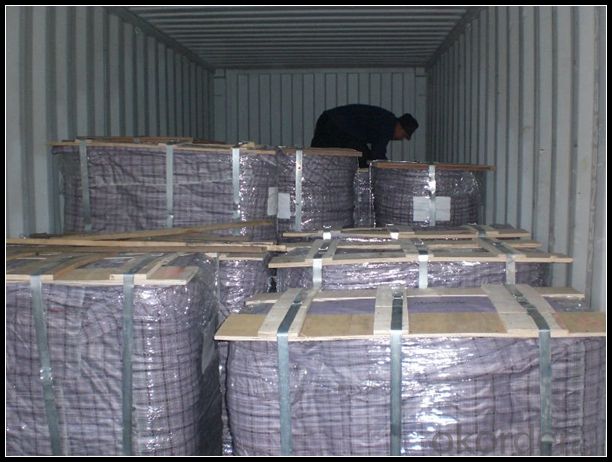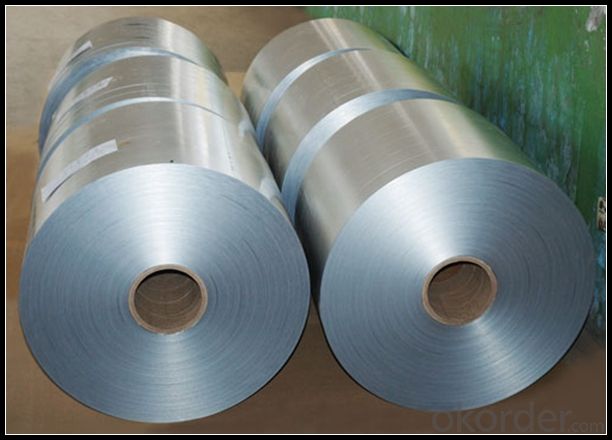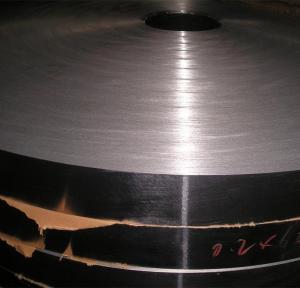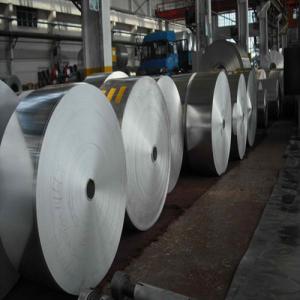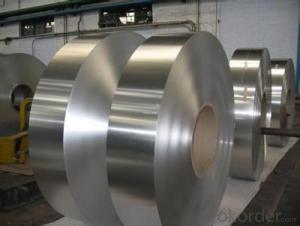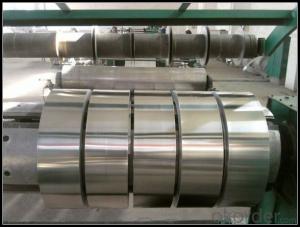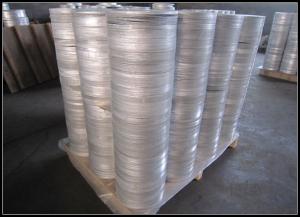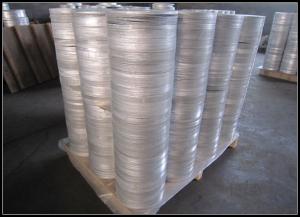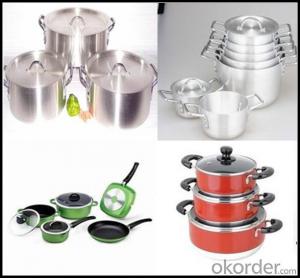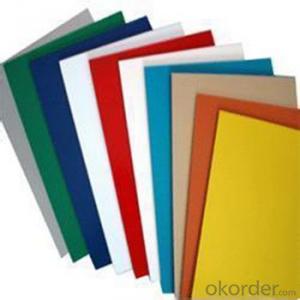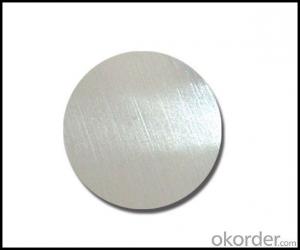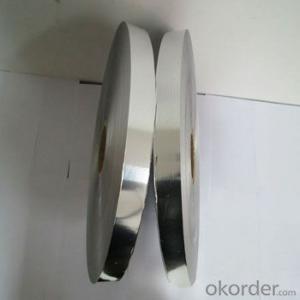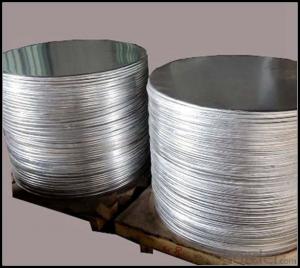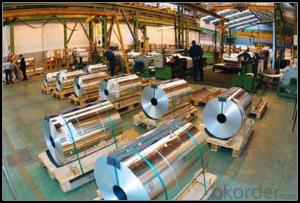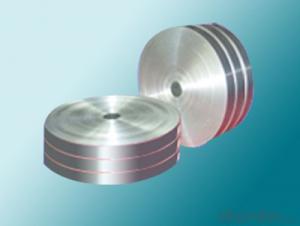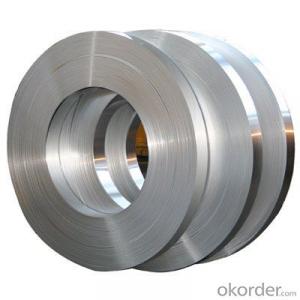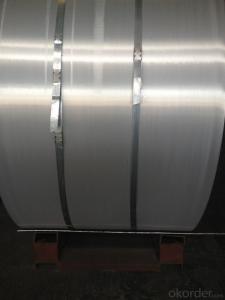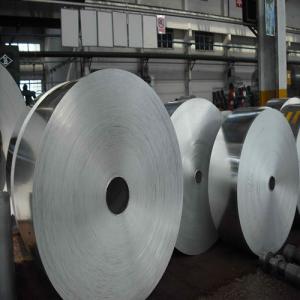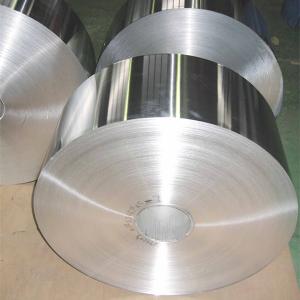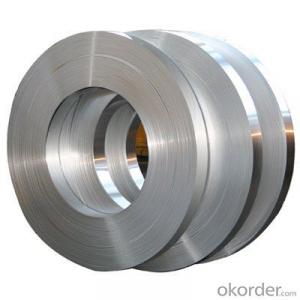Aluminum Floor Transition Strips for Trailers - Colour Coated Aluminium Sheet
- Loading Port:
- Tianjin
- Payment Terms:
- TT OR LC
- Min Order Qty:
- 1 m.t.
- Supply Capability:
- 4999 m.t./month
OKorder Service Pledge
OKorder Financial Service
You Might Also Like
Specification
1. Specification of Aluminum
1) Alloy | 1050, 1060,1100, 3003 3004 3105 3005 5005 5052 etc |
2) Temper | O/H12/H14/H1/H18/H32/H34/H36/H38//H111/H112/H116/H321/T6/T651/T3/T351 etc |
3) Thickness | 0.1mm to 6mm |
4) Width | 20mm to 3300mm |
5) Coil weight | 100kgs to 6 tons depends on actual requirement |
6) Core material | Aluminum alloy |
7) Coil Inner diameter | 76mm, 152mm,or as required |
2. Application of Aluminum
(1).Interior: wall ..
(2).Exterior: wall cladding, facades, roofing, canopies, tunnels,column covers , renovations...
(3).Advertisement: display platforms, signboards, fascia, shop fronts...
3. Feature of Aluminum
In those without allergies, aluminium is not as toxic as heavy metals, but there is evidence of some toxicity if it is consumed in amounts greater than 40 mg/day per kg of body mass.[88] Although the use of aluminiumcookware has not been shown to lead to aluminium toxicity in general, excessive consumption of antacidscontaining aluminium compounds and excessive use of aluminium-containing antiperspirants provide more significant exposure levels.
4. Certificate:
SGS and ROHS(if client request, paid by client), MTC(plant provided), Certificate of Origin(FORM A, FORM E, CO), Bureau Veritas and SGS (if client request, paid by client), CIQS certificate
5. Image of Aluminum
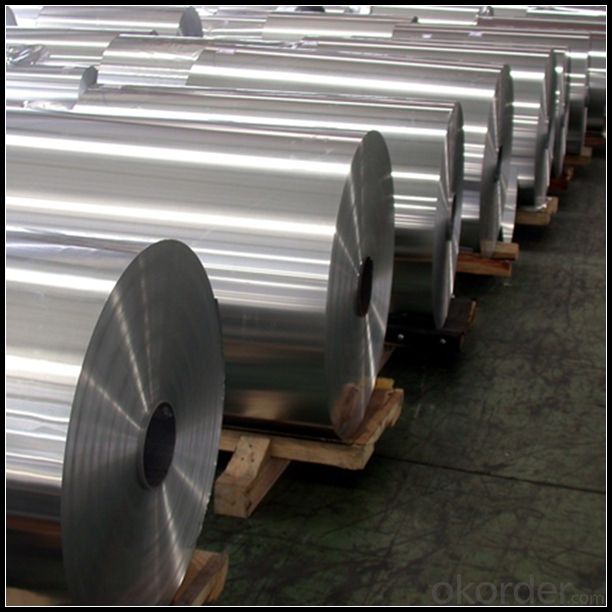
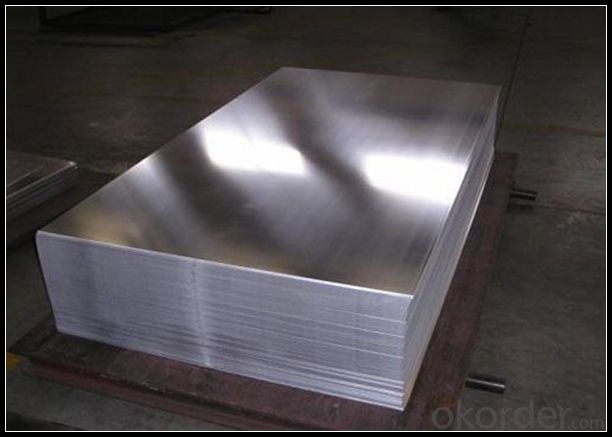
6. Our Service
1. Reply your enquiry in 24 working hours. |
2. OEM, buyer design, buyer label services provided. |
3. Exclusive and unique solution can be provide to our customer by our well traned and professional engineers and staffs. |
4. We can provide free sample for your check |
5. We have the certification of ISO 9001 |
6. Timely delivery |
7. Special discount and protection of sales area provided to our distributor. |
8. Good after-sale service. |
7. FAQ
Q: What is the produce prase? | ||||
A: Normally it would be 40days after received your deposit. | ||||
Q: Can you provide free samples? | ||||
A: Yes, free samples will be sent to you on freight at destination. | ||||
Q: Can I get your latest catalogue? | ||||
A: Yes, it will be sent to you in no time. | ||||
Q: What is the MOQ? | ||||
A: 3 tons | ||||
Q: What are your payment terms? | ||||
A: We accept L/C, D/A, D/P, T/T, West Union,etc. |
- Q: Is it possible to utilize aluminum strips for creating decorative patterns or designs on the exterior of buildings?
- <p>Yes, aluminum strips can be used to create patterns or designs on building exteriors. They are lightweight, durable, and resistant to corrosion, making them ideal for outdoor applications. Aluminum strips can be cut, bent, and shaped into various forms to create intricate designs and patterns. They can also be anodized or painted to achieve different colors and finishes, enhancing the aesthetic appeal of the building's exterior.</p>
- Q: Is it possible to use aluminum strips as a material for flooring?
- <p>Aluminum strips can indeed be used for flooring, particularly in industrial or commercial settings where durability and resistance to wear are important. They are known for their strength, low maintenance, and resistance to corrosion. Aluminum strips are often used in modular flooring systems, providing a sleek and modern appearance. However, they may not be as common or suitable for residential applications due to concerns about thermal conductivity, noise, and the potential for a cold, hard feel underfoot.</p>
- Q: Is it possible to use aluminum strips as a material for wall cladding?
- <p>Yes, aluminum strips can be used for wall cladding. They are lightweight, durable, and resistant to corrosion, making them suitable for both interior and exterior applications. Aluminum strips are also easy to install and maintain, and they can be painted or finished in various ways to match different architectural styles. However, it's important to ensure that the aluminum is of high quality and that the installation is done correctly to achieve a secure and aesthetically pleasing result.</p>
- Q: What distinguishes extruded aluminum strips from rolled ones in terms of manufacturing process and properties?
- <p>Extruded aluminum strips are formed by forcing aluminum through a die, creating a specific profile or shape. This process results in a more uniform cross-section and can produce complex profiles. Extruded strips are stronger and have better dimensional stability due to the grain flow being aligned with the direction of the extrusion. Rolled aluminum strips, on the other hand, are created by passing aluminum between rollers to achieve the desired thickness and width. This method is more suitable for producing thin, wide strips and is less costly for simpler profiles. Rolled strips may have some residual stresses and are not as strong as extruded ones, but they are more flexible and can be used in applications requiring formability.</p>
- Q: Is it possible to construct an energy-efficient wall using aluminum strips compared to other materials?
- <p>Aluminum strips alone may not be the best choice for constructing an energy-efficient wall. Aluminum is a good conductor of heat, which means it can transfer heat quickly and isn't ideal for insulation. However, aluminum can be used in combination with insulating materials to enhance energy efficiency. For instance, aluminum composite panels with a core of insulation material can provide both structural strength and thermal insulation. The key to energy-efficient walls is to use materials with high R-values (thermal resistance), such as fiberglass, cellulose, or polyurethane foam. These materials, when combined with aluminum in a composite panel, can create a wall system that is both durable and energy-efficient.</p>
- Q: Is it possible to utilize aluminum strips in the food packaging industry?
- <p>Yes, aluminum strips are commonly used in food packaging. They are valued for their excellent barrier properties against light, moisture, and gases, which help to preserve the freshness and quality of food. Aluminum's malleability also makes it easy to form into various shapes and sizes for different packaging needs. Additionally, aluminum is recyclable, contributing to sustainability efforts in the food industry.</p>
- Q: What benefits does using aluminum strips provide compared to other materials?
- <p>Aluminum strips offer several advantages over other materials, including high strength-to-weight ratio, excellent corrosion resistance, and good thermal conductivity. They are lightweight, which is beneficial for reducing the weight of structures or products. Aluminum's resistance to corrosion means it requires less maintenance and has a longer lifespan. Additionally, its thermal conductivity makes it suitable for applications where heat transfer is important, such as in heat sinks or cookware. Aluminum strips are also easy to work with, allowing for easy fabrication and customization, and they are cost-effective, making them a popular choice in various industries.</p>
- Q: What's the specialty of aluminum strip rolling?
- Aluminum strip rolling belongs to metal pressure processing and rolling direction.
- Q: Is it possible to utilize aluminum strips in environments with high temperatures?
- <p>Aluminum strips can be used in high-temperature environments, but their performance and longevity depend on the specific conditions and the alloy type. Pure aluminum has a melting point of 660掳C (1220掳F), but aluminum alloys can be designed to withstand higher temperatures. For instance, some aluminum alloys are used in aerospace and automotive applications where they experience high temperatures. However, prolonged exposure to high temperatures can lead to material degradation, so it's crucial to select the right alloy and consider the temperature limits specified by the manufacturer for the intended application.</p>
- Q: Is it possible to recycle aluminum strips?
- <p>Yes, aluminum strips can be recycled. Recycling aluminum is a highly efficient process that conserves resources and energy. Aluminum is infinitely recyclable without losing its properties, making it an environmentally friendly choice. The recycling process involves melting the aluminum, which requires significantly less energy compared to producing aluminum from raw materials. This not only reduces waste but also lowers greenhouse gas emissions. Proper recycling of aluminum strips helps in conserving natural resources and reducing the environmental impact of aluminum production.</p>
Send your message to us
Aluminum Floor Transition Strips for Trailers - Colour Coated Aluminium Sheet
- Loading Port:
- Tianjin
- Payment Terms:
- TT OR LC
- Min Order Qty:
- 1 m.t.
- Supply Capability:
- 4999 m.t./month
OKorder Service Pledge
OKorder Financial Service
Similar products
Hot products
Hot Searches
Related keywords
